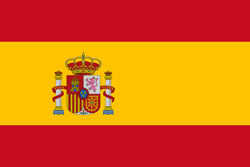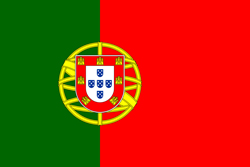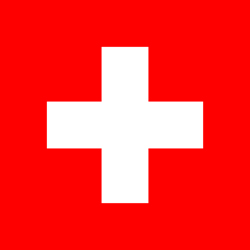IPPOG Forum Members
IPPOG
IPPOG Forum Members
Spain

Intro
The Spanish particle physics community invests a sizable effort in science outreach and promotion. Most research institutions and universities in this field carry out numerous activities, both at local level and national level. The coordination of national activities is a responsibility of the National Center for Particle, Astroparticle and Nuclear Physics (CPAN) which centralizes and manages outreach initiatives.
Both from CPAN and from the centers themselves, there is a steady participation in all the important European events and activities such as the Science Week, the European Night of Researchers, and various IPPOG masterclasses, as well as other initiatives such as "The CPAN in High Schools” a series of seminars in high schools from which thousands of students throughout Spain benefit every year.
Details
La comunidad española de física de partículas dedica un considerable esfuerzo a la promoción y divulgación de la ciencia. Las numerosas instituciones investigadoras y universidades con actividad en dicho campo realizan numerosas actividades, tanto a nivel local como de forma coordinada a nivel nacional.
Dicha coordinación recae en el Centro Nacional de Física de Partículas, Astropartículas y Nuclear (CPAN) que centraliza y gestiona las iniciativas de divulgación. Tanto desde el CPAN como de los propios centros se participa habitualmente en todos los eventos y actividades europeas más importante como la Semana de la Ciencia, la Noche Europea de los investigadores, y diversas masterclasses IPPOG, así como otras iniciativas propias como “El CPAN en el Instituto” un ciclo de seminarios en institutos de secundaria del que cada año se benefician miles de estudiantes en toda España.
JOINED: 2016
CURRENT STATUS: MEMBER
Representative
Pablo Garcia Abia
IPPOG
IPPOG Forum Members
Spain

Intro
The Spanish particle physics community invests a sizable effort in science outreach and promotion. Most research institutions and universities in this field carry out numerous activities, both at local level and national level. The coordination of national activities is a responsibility of the National Center for Particle, Astroparticle and Nuclear Physics (CPAN) which centralizes and manages outreach initiatives.
Both from CPAN and from the centers themselves, there is a steady participation in all the important European events and activities such as the Science Week, the European Night of Researchers, and various IPPOG masterclasses, as well as other initiatives such as "The CPAN in High Schools” a series of seminars in high schools from which thousands of students throughout Spain benefit every year.
Details
La comunidad española de física de partículas dedica un considerable esfuerzo a la promoción y divulgación de la ciencia. Las numerosas instituciones investigadoras y universidades con actividad en dicho campo realizan numerosas actividades, tanto a nivel local como de forma coordinada a nivel nacional.
Dicha coordinación recae en el Centro Nacional de Física de Partículas, Astropartículas y Nuclear (CPAN) que centraliza y gestiona las iniciativas de divulgación. Tanto desde el CPAN como de los propios centros se participa habitualmente en todos los eventos y actividades europeas más importante como la Semana de la Ciencia, la Noche Europea de los investigadores, y diversas masterclasses IPPOG, así como otras iniciativas propias como “El CPAN en el Instituto” un ciclo de seminarios en institutos de secundaria del que cada año se benefician miles de estudiantes en toda España.
JOINED: 2016
CURRENT STATUS: MEMBER
Representative
Xabier Marcano
IPPOG
IPPOG Forum Members
Portugal

Intro
Particle physics outreach in Portugal is mainly pursued by LIP, the Laboratory for Instrumentation and Experimental Particle Physics. LIP is a nation-wide research institute with 3 nodes associated with the universities of Lisbon, Coimbra and Minho, and connections to other universities. It covers areas of experimental physics, collaborating in particle and astroparticle experiments at CERN and around the world, radiation detectors and technological developments for particle physics, and their application to societal issues. LIP also collaborates with theoretical groups around the country.
Details
A divulgação da física de partículas é atualmente feita sobretudo pelo LIP - o Laboratório de Instrumentação e Física Experimental de Partículas. O LIP é um Laboratório Associado de âmbito nacional, com 3 pólos associados às universidades de Lisboa, Coimbra e Minho, e ligações a outras universidades portuguesas. O seu programa cobre uma vasta área de física experimental, em que colabora em experiências de física de partículas no CERN e à volta do mundo, detetores de radiação e desenvolvimentos tecnológicos associados à física de partículas, bem como a sua aplicação a áreas de interesse societal. Para além disto, o LIP desenvolve atividades em colaboração com vários grupos de física teórica em Portugal.
Portuguese Physical Society: https://fisica-particulas.spf.pt
JOINED: 2016
CURRENT STATUS: MEMBER
Representative
Henrique Carvalho
IPPOG
IPPOG Forum Members
Portugal

Intro
Particle physics outreach in Portugal is mainly pursued by LIP, the Laboratory for Instrumentation and Experimental Particle Physics. LIP is a nation-wide research institute with 3 nodes associated with the universities of Lisbon, Coimbra and Minho, and connections to other universities. It covers areas of experimental physics, collaborating in particle and astroparticle experiments at CERN and around the world, radiation detectors and technological developments for particle physics, and their application to societal issues. LIP also collaborates with theoretical groups around the country.
Details
A divulgação da física de partículas é atualmente feita sobretudo pelo LIP - o Laboratório de Instrumentação e Física Experimental de Partículas. O LIP é um Laboratório Associado de âmbito nacional, com 3 pólos associados às universidades de Lisboa, Coimbra e Minho, e ligações a outras universidades portuguesas. O seu programa cobre uma vasta área de física experimental, em que colabora em experiências de física de partículas no CERN e à volta do mundo, detetores de radiação e desenvolvimentos tecnológicos associados à física de partículas, bem como a sua aplicação a áreas de interesse societal. Para além disto, o LIP desenvolve atividades em colaboração com vários grupos de física teórica em Portugal.
Portuguese Physical Society: https://fisica-particulas.spf.pt
JOINED: 2016
CURRENT STATUS: MEMBER
Representative
Sofia Andringa
IPPOG
IPPOG Forum Members
Spain

Intro
The Spanish particle physics community invests a sizable effort in science outreach and promotion. Most research institutions and universities in this field carry out numerous activities, both at local level and national level. The coordination of national activities is a responsibility of the National Center for Particle, Astroparticle and Nuclear Physics (CPAN) which centralizes and manages outreach initiatives.
Both from CPAN and from the centers themselves, there is a steady participation in all the important European events and activities such as the Science Week, the European Night of Researchers, and various IPPOG masterclasses, as well as other initiatives such as "The CPAN in High Schools” a series of seminars in high schools from which thousands of students throughout Spain benefit every year.
Details
La comunidad española de física de partículas dedica un considerable esfuerzo a la promoción y divulgación de la ciencia. Las numerosas instituciones investigadoras y universidades con actividad en dicho campo realizan numerosas actividades, tanto a nivel local como de forma coordinada a nivel nacional.
Dicha coordinación recae en el Centro Nacional de Física de Partículas, Astropartículas y Nuclear (CPAN) que centraliza y gestiona las iniciativas de divulgación. Tanto desde el CPAN como de los propios centros se participa habitualmente en todos los eventos y actividades europeas más importante como la Semana de la Ciencia, la Noche Europea de los investigadores, y diversas masterclasses IPPOG, así como otras iniciativas propias como “El CPAN en el Instituto” un ciclo de seminarios en institutos de secundaria del que cada año se benefician miles de estudiantes en toda España.
JOINED: 2016
CURRENT STATUS: MEMBER
Representative
Carlos Escobar
IPPOG
IPPOG Forum Members
LHCb Collaboration
Intro
The LHCb (Large Hadron Collider beauty) experiment at CERN, located at Point 8 of the LHC near Geneva, focuses on studying b-quarks to understand the differences between matter and antimatter. It started operating in 2010 and investigates CP violation and rare particle decays, providing insights into why the universe is dominated by matter. LHCb has made significant discoveries, including exotic particles like tetraquarks and pentaquarks, and has observed CP violation in baryons. Its findings test the Standard Model and explore potential new physics.
Details
L'expérience LHCb (Large Hadron Collider beauty) au CERN, située au Point 8 du LHC près de Genève, se concentre sur l'étude des quarks b afin de comprendre les différences entre la matière et l'antimatière. Elle a commencé à fonctionner en 2010 et examine la violation de CP ainsi que les désintégrations rares de particules, fournissant des informations sur la prédominance de la matière dans l'univers. LHCb a réalisé des découvertes importantes, notamment des particules exotiques comme les tétraquarks et les pentaquarks, et a observé la violation de CP dans les baryons. Ses résultats testent le Modèle Standard et explorent de nouvelles physiques potentielles.
Representative
Sara Celani
IPPOG
IPPOG Forum Members
LHCb Collaboration
Intro
The LHCb (Large Hadron Collider beauty) experiment at CERN, located at Point 8 of the LHC near Geneva, focuses on studying b-quarks to understand the differences between matter and antimatter. It started operating in 2010 and investigates CP violation and rare particle decays, providing insights into why the universe is dominated by matter. LHCb has made significant discoveries, including exotic particles like tetraquarks and pentaquarks, and has observed CP violation in baryons. Its findings test the Standard Model and explore potential new physics.
Details
L'expérience LHCb (Large Hadron Collider beauty) au CERN, située au Point 8 du LHC près de Genève, se concentre sur l'étude des quarks b afin de comprendre les différences entre la matière et l'antimatière. Elle a commencé à fonctionner en 2010 et examine la violation de CP ainsi que les désintégrations rares de particules, fournissant des informations sur la prédominance de la matière dans l'univers. LHCb a réalisé des découvertes importantes, notamment des particules exotiques comme les tétraquarks et les pentaquarks, et a observé la violation de CP dans les baryons. Ses résultats testent le Modèle Standard et explorent de nouvelles physiques potentielles.
Representative
Carina Trippi
IPPOG
IPPOG Forum Members
Switzerland

Intro
The Swiss Institute for Particle Physics (CHIPP) is an association according to Swiss law regrouping all the particle, astroparticle, and nuclear physicists holding a Master in physics and working for a Swiss institution, as well as the Swiss PhD nationals working at CERN.
Founded in 2003, CHIPP aims at strengthening in Switzerland three main pillars: Particle physics at the high-energy and intensity frontiers
astroparticle physics and neutrino physics.
This is achieved by promote public awareness on particle and astroparticle physics, helping towards a successful participation of Swiss groups in international projects and ensuring a proper Swiss representation in relevant national and international bodies.
Details
German
Das Schweizerische Institut für Teilchenphysik (CHIPP) ist die Dachorganisation der Schweizer Forschenden auf dem Gebiet der Teilchen-, Astroteilchen- und Kernphysik mit einem Master in Physik, die für eine Schweizer Institution arbeiten, sowie die Schweizer Doktoranden, die am CERN arbeiten, zusammengeschlossen sind.
CHIPP wurde 2003 gegründet und zielt darauf ab in der Schweiz die drei Forschungsgebiete Teilchenphysik, Astroteilchenphysik und Neutrinophysik zu stärken.
Dies wird erreicht durch die Förderung des öffentlichen Bewusstseins für die Teilchen- und Astroteilchenphysik, die Unterstützung der erfolgreichen Beteiligung von Schweizer Gruppen an internationalen Projekten und die Sicherstellung einer angemessenen Schweizer Vertretung in relevanten nationalen und internationalen Gremien.
French
L'Institut Suisse de Physique des Particules (CHIPP) réunit les chercheuses et chercheurs de la physique des particules, des astroparticules et de la physique nucléaire. Ces chercheurs doivent être titulaires d'un Master en physique et travailler pour une institution Suisse. Font partie de CHIPP aussi les doctorants suisses travaillant au CERN.
Fondé en 2003, le CHIPP vise à renforcer trois piliers principaux en Suisse: la physique des particules aux frontières des hautes énergies et des hautes intensités, la physique des astroparticules et la physique des neutrinos.
Cet objectif est atteint en sensibilisant le public à la physique des particules et des astroparticules, en contribuant à une participation de groupes suisses à des projets internationaux et en assurant une représentation suisse adéquate dans les organes nationaux et internationaux pertinents.
Italian
L'Istituto Svizzero di Fisica delle Particelle (CHIPP) riunisce i ricercatori di fisica delle particelle, dell'astrofisica e del nucleare che sono in possesso di un Master in fisica e che lavorano per un istituto Svizzero. Sono inclusi anche i cittadini svizzeri con dottorato che lavorano al CERN. Fondato nel 2003, CHIPP mira a rafforzare in Svizzera tre pilastri principali: fisica delle particelle alle frontiere delle alte energie e dell'intensità, astrofisica e fisica dei neutrini.
Questo obiettivo viene raggiunto promuovendo l’educazione del pubblico riguardo la fisica delle particelle e dell’astrofisica, favorendo una brillante partecipazione dei gruppi svizzeri in progetti internazionali e assicurando un'adeguata rappresentanza svizzera negli organismi nazionali e internazionali pertinenti.
JOINED: 2016
CURRENT STATUS: MEMBER
Representative
Nicolas Angelides
IPPOG
IPPOG Forum Members
Pierre Auger Observatory
Intro
The Pierre Auger Observatory, located in the Mendoza province of Argentina, is the largest experiment in the world dedicated to the study of ultra-high-energy cosmic rays.
Details
El Observatorio Pierre Auger, ubicado en la provincia de Mendoza, Argentina, es el experimento más grande del mundo dedicado al estudio de rayos cósmicos de ultra alta energía.
Representative
Karen Salomé Caballero Mora
IPPOG
IPPOG Forum Members
Pierre Auger Observatory
Intro
The Pierre Auger Observatory, located in the Mendoza province of Argentina, is the largest experiment in the world dedicated to the study of ultra-high-energy cosmic rays.
Details
El Observatorio Pierre Auger, ubicado en la provincia de Mendoza, Argentina, es el experimento más grande del mundo dedicado al estudio de rayos cósmicos de ultra alta energía.

